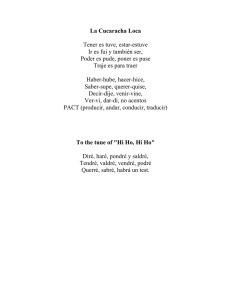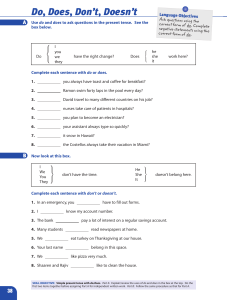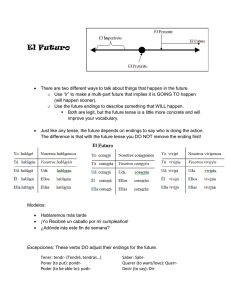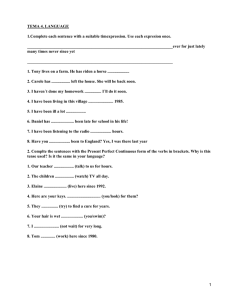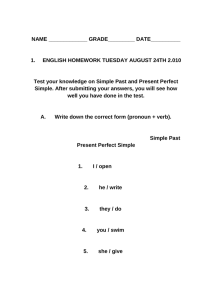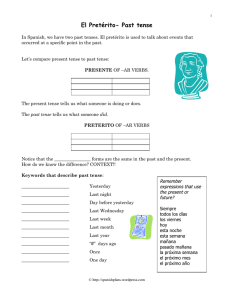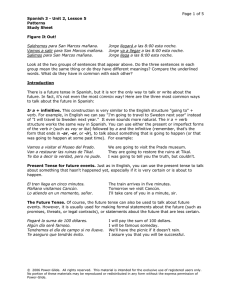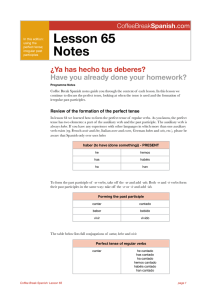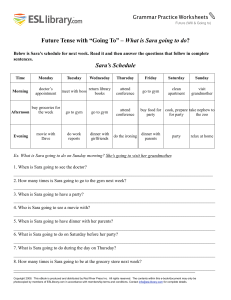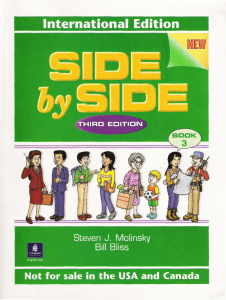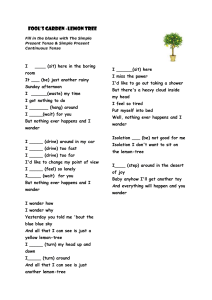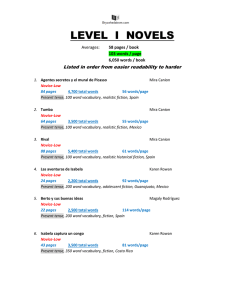Future Tense
Anuncio
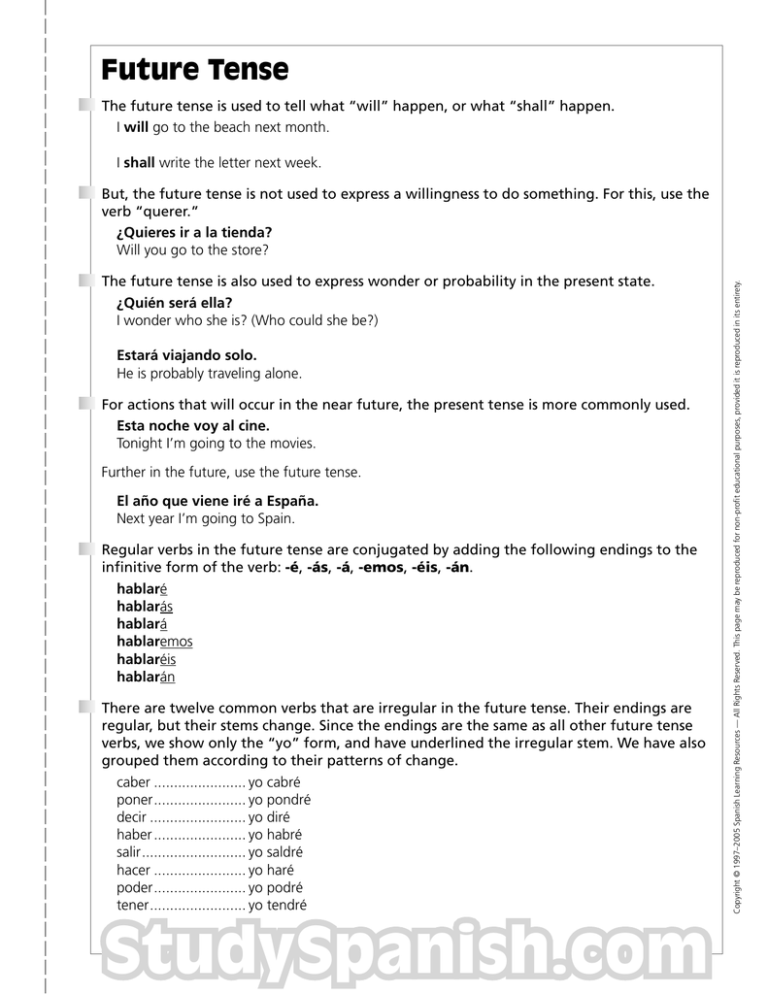
Future Tense The future tense is used to tell what “will” happen, or what “shall” happen. I will go to the beach next month. I shall write the letter next week. The future tense is also used to express wonder or probability in the present state. ¿Quién será ella? I wonder who she is? (Who could she be?) Estará viajando solo. He is probably traveling alone. For actions that will occur in the near future, the present tense is more commonly used. Esta noche voy al cine. Tonight I’m going to the movies. Further in the future, use the future tense. El año que viene iré a España. Next year I’m going to Spain. Regular verbs in the future tense are conjugated by adding the following endings to the infinitive form of the verb: -é, -ás, -á, -emos, -éis, -án. hablaré hablarás hablará hablaremos hablaréis hablarán There are twelve common verbs that are irregular in the future tense. Their endings are regular, but their stems change. Since the endings are the same as all other future tense verbs, we show only the “yo” form, and have underlined the irregular stem. We have also grouped them according to their patterns of change. caber ....................... yo cabré poner ....................... yo pondré decir ........................ yo diré haber ....................... yo habré salir .......................... yo saldré hacer ....................... yo haré poder ....................... yo podré tener ........................ yo tendré StudySpanish.com Copyright © 1997–2005 Spanish Learning Resources — All Rights Reserved. This page may be reproduced for non-profit educational purposes, provided it is reproduced in its entirety. But, the future tense is not used to express a willingness to do something. For this, use the verb “querer.” ¿Quieres ir a la tienda? Will you go to the store? querer ...................... yo querré valer......................... yo valdré saber........................ yo sabré venir ........................ yo vendré Let’s add two flashcards for the future tense: Verb Flashcards 88. Future Tense Infinitive + ending (-é, -ás, -á, -emos, -éis, -án) 89. Future Tense Irregulars caber ................ yo cabré poner ................ yo pondré decir ................. yo diré haber ................ yo habré salir ................... yo saldré hacer ................ yo haré poder ................ yo podré tener ................. yo tendré querer ............... yo querré valer .................. yo valdré saber ................. yo sabré venir ................. yo vendré StudySpanish.com Copyright © 1997–2005 Spanish Learning Resources — All Rights Reserved. This page may be reproduced for non-profit educational purposes, provided it is reproduced in its entirety. Note that compound verbs based on the irregular verbs inherit the same irregularities. Here are a few examples: desquerer ................. yo desquerré resaber ..................... yo resabré anteponer ................ yo antepondré mantener ................. yo mantendré prevaler .................... yo prevaldré
